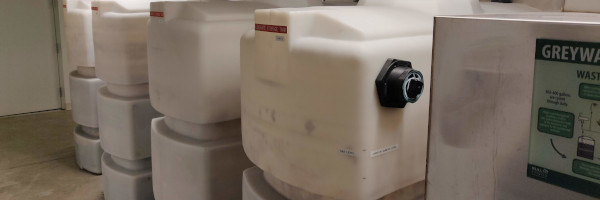Utility: Difference between revisions
Jump to navigation
Jump to search
No edit summary |
No edit summary |
||
| (6 intermediate revisions by the same user not shown) | |||
| Line 1: | Line 1: | ||
{{ | {{Book | ||
| | | blueprint = Utility | ||
| | | sectors = Utility | ||
| | | authors = Ed Davalos, Kenneth Thompson, Scott Pomeroy, Derick Lee, Deborah Acosta, Wilfred Pinfold | ||
| | | poc = Pete Tseronis | ||
| | | email = pete@dotsandbridges.com | ||
| document = Energy-water-waste-management-blueprint.pdf | |||
| chapter = 900 | |||
| image = UtilityChapter.jpg | |||
* | | summary = Smart utilities refer to the use of technology and data to improve the efficiency, sustainability, and livability of energy waste and water in a municipality. | ||
* | }}__NOTOC__ | ||
* | Examples of smart city utilities include: | ||
* | *'''[[Smart Grid]]''': that allow for more efficient and reliable management of electricity distribution | ||
* | *'''[[Intelligent Transportation]]''': that use real-time data to optimize traffic flow and reduce congestion | ||
* | *'''[[Smart Waste]]''': that use sensors and monitoring to improve the collection and processing of waste | ||
*'''[[Smart Water]]''': systems that use sensors and monitoring to improve the distribution and conservation of water | |||
*'''[[Smart Lighting]]''': that use sensors and controls to adjust lighting levels in response to changes in ambient light and activity levels | |||
*'''[[Intelligent Building]]''': that use data and automation to improve energy efficiency and comfort in buildings. | |||
*'''[[Communications Networks]]''': that connected devices, technologies, and infrastructure and are used to transmit information and data between different points. | |||
Smart utilities can help to create more livable, efficient, and sustainable cities in several ways: | |||
*'''Improved energy efficiency''': Smart grid systems can help to improve the efficiency of energy distribution, enabling the integration of renewable energy sources and reducing energy loss during transmission and distribution. | |||
*'''Reduced energy costs''': Smart grid systems can help to reduce energy costs by enabling more efficient use of energy and by reducing the need for expensive new power generation and transmission infrastructure. | |||
*'''Increased reliability''': Smart grid systems can provide real-time monitoring and control, which can help prevent power outages and improve the overall reliability of the grid. | |||
*'''Increased sustainability''': Smart grid systems can facilitate the integration of renewable energy sources, such as solar and wind power, into the grid, which can help to reduce dependence on fossil fuels. | |||
*'''Improved transportation''': Smart transportation systems can help to reduce congestion, improve mobility, and increase safety on the roads. | |||
*'''Increased water efficiency''': Smart water systems can help to improve the efficiency of water management by reducing leaks, identifying inefficiencies, and optimizing water distribution. | |||
*'''Reduced water costs''': Smart water systems can help to reduce the costs of water management by reducing the need for expensive infrastructure, identifying inefficiencies, and detecting fraud. | |||
*'''Increased sustainability''': Smart water systems can help to increase the sustainability of water management by reducing water usage, detecting and preventing contamination, and reducing the environmental impact of water management. | |||
*'''Increased waste management efficiency''': Smart waste systems can help to improve the efficiency of waste management by reducing the number of missed pickups, reducing the amount of fuel consumed by garbage trucks, and increasing the efficiency of waste collection. | |||
*'''Increased sustainability''': Smart waste systems can help to increase the sustainability of waste management by reducing emissions, fuel consumption, and other environmental impacts. | |||
In summary, smart utilities can help to create more livable, efficient, and sustainable cities by reducing energy and water consumption, improving transportation, and reducing waste and environmental impacts. | |||
Latest revision as of 20:36, January 24, 2023
| Utility | ||||||||||||||||||||||||||||||||
|---|---|---|---|---|---|---|---|---|---|---|---|---|---|---|---|---|---|---|---|---|---|---|---|---|---|---|---|---|---|---|---|---|

| ||||||||||||||||||||||||||||||||
| Introduction | ||||||||||||||||||||||||||||||||
| Contact | Pete Tseronis | |||||||||||||||||||||||||||||||
| Topics | ||||||||||||||||||||||||||||||||
NEWS
REPORTS
| ||||||||||||||||||||||||||||||||
- Authors
Smart utilities refer to the use of technology and data to improve the efficiency, sustainability, and livability of energy waste and water in a municipality.
Examples of smart city utilities include:
- Smart Grid: that allow for more efficient and reliable management of electricity distribution
- Intelligent Transportation: that use real-time data to optimize traffic flow and reduce congestion
- Smart Waste: that use sensors and monitoring to improve the collection and processing of waste
- Smart Water: systems that use sensors and monitoring to improve the distribution and conservation of water
- Smart Lighting: that use sensors and controls to adjust lighting levels in response to changes in ambient light and activity levels
- Intelligent Building: that use data and automation to improve energy efficiency and comfort in buildings.
- Communications Networks: that connected devices, technologies, and infrastructure and are used to transmit information and data between different points.
Smart utilities can help to create more livable, efficient, and sustainable cities in several ways:
- Improved energy efficiency: Smart grid systems can help to improve the efficiency of energy distribution, enabling the integration of renewable energy sources and reducing energy loss during transmission and distribution.
- Reduced energy costs: Smart grid systems can help to reduce energy costs by enabling more efficient use of energy and by reducing the need for expensive new power generation and transmission infrastructure.
- Increased reliability: Smart grid systems can provide real-time monitoring and control, which can help prevent power outages and improve the overall reliability of the grid.
- Increased sustainability: Smart grid systems can facilitate the integration of renewable energy sources, such as solar and wind power, into the grid, which can help to reduce dependence on fossil fuels.
- Improved transportation: Smart transportation systems can help to reduce congestion, improve mobility, and increase safety on the roads.
- Increased water efficiency: Smart water systems can help to improve the efficiency of water management by reducing leaks, identifying inefficiencies, and optimizing water distribution.
- Reduced water costs: Smart water systems can help to reduce the costs of water management by reducing the need for expensive infrastructure, identifying inefficiencies, and detecting fraud.
- Increased sustainability: Smart water systems can help to increase the sustainability of water management by reducing water usage, detecting and preventing contamination, and reducing the environmental impact of water management.
- Increased waste management efficiency: Smart waste systems can help to improve the efficiency of waste management by reducing the number of missed pickups, reducing the amount of fuel consumed by garbage trucks, and increasing the efficiency of waste collection.
- Increased sustainability: Smart waste systems can help to increase the sustainability of waste management by reducing emissions, fuel consumption, and other environmental impacts.
In summary, smart utilities can help to create more livable, efficient, and sustainable cities by reducing energy and water consumption, improving transportation, and reducing waste and environmental impacts.

![link=[[Media:{{{Release}}}]]](/images/thumb/1/16/Whitehouse.jpg/200px-Whitehouse.jpg)










